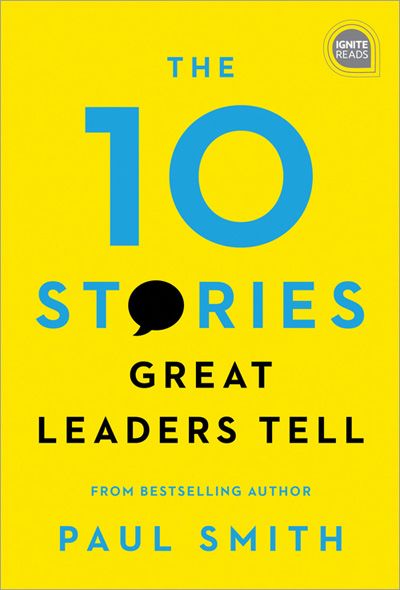
Recruiting for Fleet in a Tight Labor Market
Ask utility fleet professionals about their biggest challenge, and many will say that it’s recruiting – and keeping – good, young mechanics.
That’s because you have to compete with OEMs, local truck centers and other types of fleets for access to a shrinking pool of highly skilled mechanics.
So, how do you gain an edge in attracting top talent in a tight labor market?
Tell the best story.
That’s the advice from Paul Smith (http://leadwithastory.com), the bestselling author of several books on business storytelling, including his latest, “The 10 Stories Great Leaders Tell.” The 10th story deals specifically with recruiting.
UFP recently caught up with Smith to get his take on how fleet managers can use stories to attract the best technicians. Here’s an edited version of our conversation.
UFP: Why use stories for recruiting?
Paul Smith: For the same reason, I think, that you use storytelling in just about every other area of leadership – it’s just more effective. And there are many reasons why. The biggest one is that human beings tend to make decisions in the emotional processing part of the brain and then rationalize those decisions a few nanoseconds later in the more conscious, logical thinking part of the brain.
So, the decision about where to work – it’s almost like deciding who to marry. If you just left it to numbers and logic, without speaking to the emotional aspect of the decision, you’re missing a big part of the equation about why people choose a career and an employer. Most people don’t just want to draw a paycheck.
This is where stories come in – to connect with the emotional processing part of the brain. These could be stories about someone feeling challenged, getting promoted faster, getting to do this job they love or whatever you think would best relate to the candidate’s career aspirations.
If you want to influence what people think, feel and do – in other words, leadership – it turns out you need to influence both parts of the brain. And stories are uniquely qualified vehicles to reach the subconscious emotional processing part of the brain.
Where does storytelling fit in the fleet recruiting process?
The time to tell a differentiating story is usually when you’re face to face with the candidate, such as during the interview or at a job fair. They want to know, “Why should I work here?”
If you say, “We offer challenging careers with competitive pay and benefits, and opportunities for advancement,” keep in mind that every employer says that. Those are the facts and data, which are essential to help candidates determine whether they want to learn more.
But telling a good recruiting story takes the next step – to show why your organization is different from all the other opportunities. The story gets that person to think, “I want to work at that company because I heard about somebody who was like me, who went there and did really well.”
Put yourself in a fleet manager’s shoes. You’re competing for highly skilled technicians to join your team. How do you determine what stories to tell for maximum impact?
Talk to your team. Find out why they decided to work for you – and why they stay. Why haven’t they quit after, say, 20 years?
Now, some of the answers are going to be boring, like, “Oh, I don’t know. I like living here and my wife’s from here,” or whatever. But if you ask enough people, you’re going to get some interesting stories.
What questions should fleet managers ask to uncover good recruiting stories?
Ask questions like, “Have you ever considered leaving this company but changed your mind and decided to stay? What made you think about leaving? What made you change your mind and decide to stay?”
And whatever they say, that becomes the story – one of the stories that you’re going to want to tell people when recruiting.
You need to find out what the barriers are to getting people in and what could drive them away once they get there. Then craft your stories to alleviate those concerns.
*****
3 Questions to Uncover Powerful Recruiting Stories
Ask yourself, and the people you work with, these three questions:
- What made you want to work here?
- Why do you stay?
- Have you ever thought about quitting but decided not to? What made you change your mind?
~Source: “The 10 Stories Great Leaders Tell” (2019) by Paul Smith
*****
8-Point Checklist for Crafting Powerful Business Stories
- Why should your audience listen to your story? (hook)
- Where and when did the story take place? (context)
- Who is the main character and what did that person want? (context)
- What was the problem or opportunity that the main character ran into? (challenge)
- What did he or she do about it? (conflict or struggle)
- How did it turn out in the end? (resolution)
- What did you learn from it? (lesson)
- What do you think your audience should do now that they’ve heard it? (recommendation)
~Source: “The 10 Stories Great Leaders Tell” (2019) by Paul Smith


